In diamond news: Tanzania seizes $15 million diamond shipment and Zimbabwe enriches political elites with diamond revenues
The Tanzania government continues to make strides toward increasing its control over the country’s mining sector, a process started after the 2015 election of President John Magufuli. The marriage between the Tanzanian government and mining companies has been under a fair amount of pressure. For instance, in July, gold mining company Acacia was fined a $190 billion tax bill. On August 31, Tanzanian authorities seized a $14.7 million diamond shipment from Williamson Diamonds. The Tanzanian government alleged that Petra Diamonds, who owns a 75 percent stake in the company, under-declared the value of that shipment by $14.8 million. In addition to seizing the diamonds, the Tanzanian government has ordered a criminal investigation against officials involved in declaring the value of the diamonds. As a result, on September 11, Petra’s share price fell by 28 percent, the largest dip since June 2001. Petra has halted diamond production in Tanzania, citing “health and safety and security reasons.”
In other news, Global Witness, an anti-corruption campaign group, has released a report alleging that Zimbabwe’s intelligence agency, the Central Intelligence Organization (CIO), secretly owns a diamond company whose revenues are used to enrich the president’s allies. The publication of the report ignites fears that the missing revenue was used to enrich Zimbabwe’s political elite. The diamond firm in question, Kusena Diamonds, located in the Marange region, is officially owned by the Zimbabwe Mineral Development Corporation. Nevertheless, Global Witness states that Kusena “was set up by the CIO to secure a secret off the books source of financing.”
Recent Biafra separatist efforts turn violent in clash with the Nigerian army
Biafra separatists clashed once again with the Nigerian army on Sunday in the southeastern state of Abia, resulting in five deaths, according to the Indigenous People of Biafra (IPOB) movement. The IPOB claims that the soldiers had made an attempt to kill its leader, Nnamdi Kanu. The army, however, disputes this account, stating that there were no deaths and that the conflict began when IPOB fighters blocked a military convey by throwing broken bottles and rocks. The governor of Abia State has since enforced a curfew. In recent months, the decades-old Biafra separatist movement, which led to a three-year civil war in 1966, has heated up. Between August 2015 and August 2016 around 150 young separatists died in the conflict. The military disputes this number and defends its responses as proportionate.
Kanu was only released on bail (according to the trial judge, for health reasons) in April of this year after being held since October 2015 on charges of criminal conspiracy, treasonable felony, and belonging to an illegal society. He frequently calls for “civil disobedience” to force a vote on cessation and self-determination. President Muhammadu Buhari has been clear, though, on the fact that Nigerian unity is “not negotiable.”
In response to Biafra’s continuing agitations and protests, in June a group of young northern leaders demanded that all Igbos (the ethnic group of the proposed Biafra nation) must leave the northern states within three months. These extreme views are not held by all, though: A northern governor then ordered the arrests of those belligerent leaders.
For more on separatist movements in Nigeria and recommendations for peaceful resolutions, please see Jideofor Adibe’s Separatist agitations in Nigeria: Causes and trajectories and Separatist agitations in Nigeria: The way forward.
South African Airways financial struggle continues and so cuts 23 percent of capacity
This week, South African Airways announced that it would cut five narrow-body aircraft from its fleet by the end of the year in an effort to make the airline profitable again. This reduction in its fleet is expected to affect both domestic and international routes with overall capacity falling by 23 percent. South African Airways currently operates one of Africa’s largest fleets; still, the company has not been able to turn a profit since 2011. The state-owned airline is on the verge of bankruptcy with government guarantees for its debt and a recent loan repayment to Standard Chartered Bank of 2.3 billion rand ($174 million) covered by the government on behalf of the airline. According to Bloomberg, the airline has been surviving on state-backed guarantees of 19.1 billion rand, 18.6 billion of which has already been used.
The government and South African Airways have taken several steps to turn around the airline with the fleet reduction just the most recent. The government recently appointed a new CEO for the airline in Vuyani Jaraya, a former executive at Vodacom. The government is also facing a September 30 deadline with 6.8 billion rand in South African Airways debt up for repayment with several lenders indicating an unwillingness to roll over that debt. The government is expected to push a special appropriations bill for 10 billion rand through its parliament, which will cover the immediate loan repayments and most of the 13 billion rand requested for the airline’s turnaround. One proposal to raise the 10 billion rand has been for the government to sell its holdings in landline provider Telkom, where it owns a 39 percent stake.
The Brookings Institution is committed to quality, independence, and impact.
We are supported by a diverse array of funders. In line with our values and policies, each Brookings publication represents the sole views of its author(s).




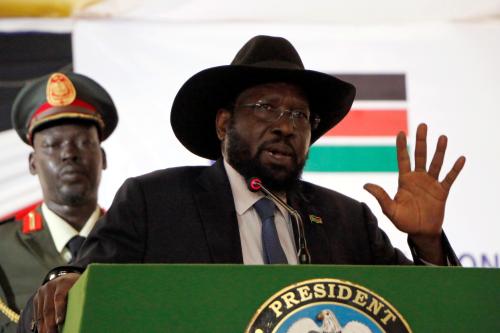
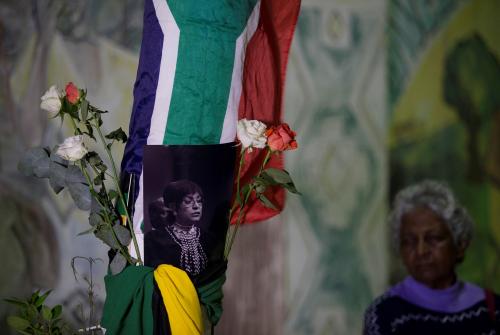
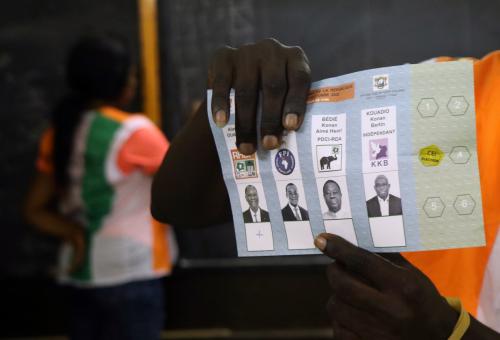


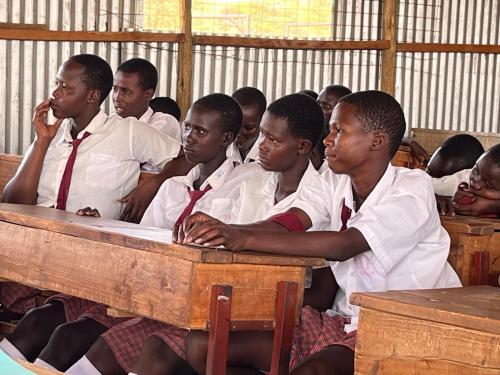
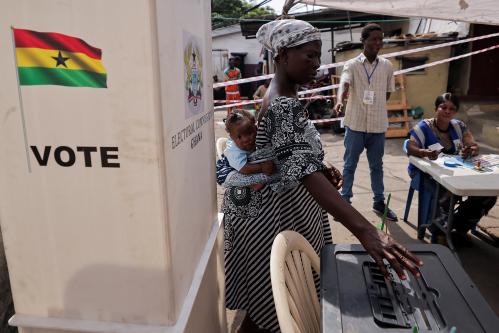
Commentary
Africa in the News: Tanzania seizes diamond shipment, Biafra separatists clash with Nigerian army, and South African Airways cuts flights
September 15, 2017